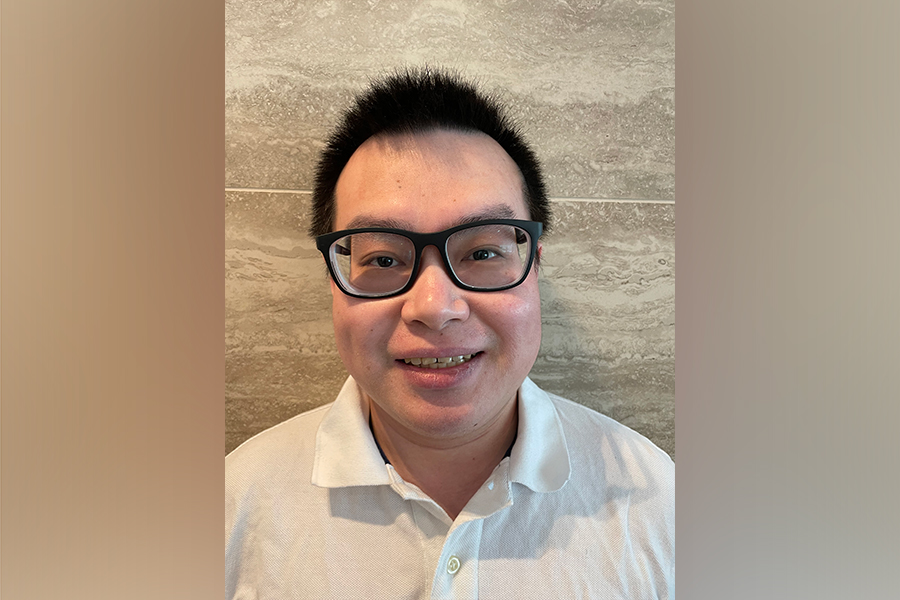Data Science in Detail: Chen Mu

Chen Mu graduated in 2021 with a Ph.D in industrial engineering from the Florida A&M University-Florida State University College of Engineering, and in 2019, he graduated with a master’s degree in statistical data science from FSU’s Department of Statistics, part of the College of Arts and Sciences. While earning his doctorate, Mu worked as a data scientist contractor for Bayer, a pharmaceutical and life sciences company. Now, he works full-time as a senior data scientist for international convenience store brand Circle K.
Where are you from? What brought you to FSU?
I am from Beijing, China, and I was offered an opportunity at the FAMU-FSU College of Engineering’s Department of Industrial and Manufacturing Engineering to work on machine learning and data mining techniques applied on nano-informatics and in the nanomanufacturing field. Nano-informatics is an interdisciplinary field that develops methods and software tools for understanding nanomaterials (materials possessing, at minimum, one external dimension measuring 1-100nm), their properties, and their interactions with biological entities, and then using that information more efficiently. The nanomanufacturing field involves scaled-up, reliable, and cost-effective manufacturing of nanoscale materials, structures, devices and systems. I wanted to apply my knowledge of mathematics and numerical methods to solving real industry/application problems. I was also impressed by the interdisciplinary cooperation and opportunities among different departments and labs at the College of Engineering and FSU.
What inspired you to choose your major and specific area of research?
I have always wanted to apply mathematical and statistical methods to real-life problems to create real-life solutions. Theory is important, but I want to also focus on how mathematical and statistical methods can effectively solve problems. During my time as a student, I applied statistical and machine learning methods to the reconstruction of nano-images and nano-objects, nano meaning incredibly small. I utilized and developed new methods, leading to more accurate and faster reconstruction of nanomaterials. I not only made advancement on the research problem, but I also gained a deeper understanding of machine learning methods and how to use artificial intelligence algorithms to solve real problems.
In my experience as a data scientist, I have applied statistical methods by using statistical and programming software to analyze and visualize data and then providing the business with key indicators and insights to help them make decisions based on my analysis. I have also built machine learning and time series models to predict sales of products and analyze the price elasticity associated with sales. This allowed the marketing team to better price products, which ultimately led to balanced price and demand among different products, resulting in higher company revenue. These machine learning and time series models are currently considered state-of-the-art statistical models.
You currently work as a senior data scientist for Circle K. What does your job entail?
I work with a team of data scientists on several projects including pricing, promotion and product assortment. We apply and develop advanced statistical and data mining algorithms to increase revenue and profit margin, as well as drive other business results. We also partner with multiple departments, including global marketing, category management and business unit leadership to report our analysis and deliver results for business problems. We use specific programming languages in our work, such as Python and R, a cloud computing platform, and visualization tools like Power BI, and presentation software.
What is your favorite thing about your job? What has been most surprising to you about the field of data science?
My favorite part of the job is that I have the chance to access many data sources, from which I can extract useful information and patterns that allow me to solve problems. I also enjoy working with colleagues from my team, as well as different departments, and learning from both. It has been surprising to learn just how interdisciplinary the data science field is, and being a data scientist involves a comprehensive knowledge of many areas such as statistics, programming, engineering, business knowledge and communication skills.
What advice do you have for students considering careers in data science?
Data science is a growing field and a hot job market nowadays, and data science methods can offer potential advancement in many different areas and fields. I would recommend identifying what field or career you are passionate about, then begin learning simple data science techniques. Take advantage of resources like FSU’s Interdisciplinary Data Science Master’s Degree Program. I believe data science will become an essential tool for more and more areas of study, and having expertise in both data science and other areas of interest will help you become a successful data scientist.
Being a successful data scientist will require the mastering of many technical and non-technical abilities. You’ll need solid technical knowledge through training and taking courses, but you’ll also need a good understanding of business problems, domain knowledge and communication skills, as you will need to keep learning and improving during your career.

